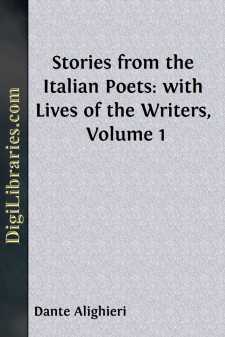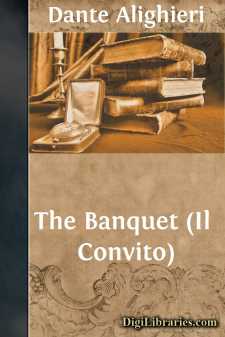Categories
- Antiques & Collectibles 13
- Architecture 36
- Art 48
- Bibles 22
- Biography & Autobiography 813
- Body, Mind & Spirit 142
- Business & Economics 28
- Children's Books 17
- Children's Fiction 14
- Computers 4
- Cooking 94
- Crafts & Hobbies 4
- Drama 346
- Education 46
- Family & Relationships 57
- Fiction 11829
- Games 19
- Gardening 17
- Health & Fitness 34
- History 1377
- House & Home 1
- Humor 147
- Juvenile Fiction 1873
- Juvenile Nonfiction 202
- Language Arts & Disciplines 88
- Law 16
- Literary Collections 686
- Literary Criticism 179
- Mathematics 13
- Medical 41
- Music 40
- Nature 179
- Non-Classifiable 1768
- Performing Arts 7
- Periodicals 1453
- Philosophy 64
- Photography 2
- Poetry 896
- Political Science 203
- Psychology 42
- Reference 154
- Religion 513
- Science 126
- Self-Help 84
- Social Science 81
- Sports & Recreation 34
- Study Aids 3
- Technology & Engineering 59
- Transportation 23
- Travel 463
- True Crime 29
Stories from the Italian Poets: with Lives of the Writers, Volume 1
by: Dante Alighieri
Description:
Excerpt
DANTE
Critical Notice
OF
DANTE'S LIFE AND GENIUS.[1]
Dante was a very great poet, a man of the strongest passions, a claimant of unbounded powers to lead and enlighten the world; and he lived in a semi-barbarous age, as favourable to the intensity of his imagination, as it was otherwise to the rest of his pretensions. Party zeal, and the fluctuations of moral and critical opinion, have at different periods over-rated and depreciated his memory; and if, in the following attempt to form its just estimate, I have found myself compelled, in some important respects, to differ with preceding writers, and to protest in particular against his being regarded as a proper teacher on any one point, poetry excepted, and as far as all such genius and energy cannot in some degree help being, I have not been the less sensible of the wonderful nature of that genius, while acting within the circle to which it belongs. Dante was indeed so great a poet, and at the same time exhibited in his personal character such a mortifying exception to what we conceive to be the natural wisdom and temper of great poets; in other words, he was such a bigoted and exasperated man, and sullied his imagination with so much that is contradictory to good feeling, in matters divine as well as human; that I should not have thought myself justified in assisting, however humbly, to extend the influence of his writings, had I not believed a time to have arrived, when the community may profit both from the marvels of his power and the melancholy absurdity of its contradictions.
Dante Alighieri, who has always been known by his Christian rather than surname (partly owing to the Italian predilection for Christian names, and partly to the unsettled state of patronymics in his time), was the son of a lawyer of good family in Florence, and was born in that city on the 14th of May 1265 (sixty-three years before the birth of Chaucer). The stock is said to have been of Roman origin, of the race of the Frangipani; but the only certain trace of it is to Cacciaguida, a Florentine cavalier of the house of the Elisei, who died in the Crusades. Dante gives an account of him in his Paradiso.[2] Cacciaguida married a lady of the Alighieri family of the Valdipado; and, giving the name to one of his children, they subsequently retained it as a patronymic in preference to their own. It would appear, from the same poem, not only that the Alighieri were the more important house, but that some blot had darkened the scutcheon of the Elisei; perhaps their having been poor, and transplanted (as he seems to imply) from some disreputable district. Perhaps they were known to have been of ignoble origin; for, in the course of one of his most philosophical treatises, he bursts into an extraordinary ebullition of ferocity against such as adduce a knowledge of that kind as an argument against a family's acquired nobility; affirming that such brutal stuff should be answered not with words, but with the dagger.[3]
The Elisei, however, must have been of some standing; for Macchiavelli, in his History of Florence, mentions them in his list of the early Guelph and Ghibelline parties, where the side which they take is different from that of the poet's immediate progenitors.[4] The arms of the Alighieri (probably occasioned by the change in that name, for it was previously written Aldighieri) are interesting on account of their poetical and aspiring character....



